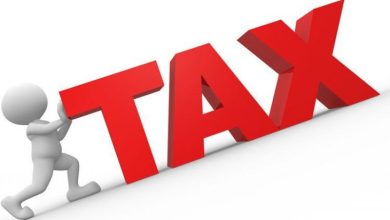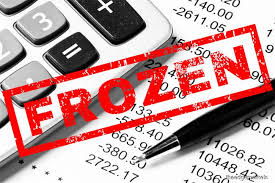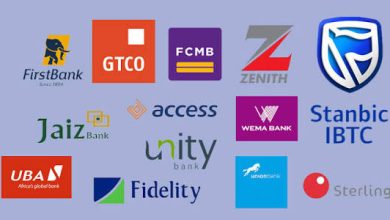How Tinubu’s Historic Nigeria 2025 Tax Reform Will Redefine the Way Nigerians Earn, Spend, and Invest
A deep dive into the four pillars, tax-free thresholds, and incentives shaping Nigeria’s new economic future.

For decades, Nigeria’s tax system felt like a maze, with confusing rules, too many loopholes, and growing distrust. But that ends now. On June 26, 2025, President Bola Ahmed Tinubu signed into law what will go down as the Nigeria 2025 Tax Reform, the most sweeping overhaul in the country’s modern tax history. Starting January 1, 2026, this bold change will transform how Nigerians earn, spend, and invest.
Why this matters
Millions struggled with opaque tax rules while the wealthy skirted responsibility. The Nigeria 2025 Tax Reform changes that. By embedding fairness, clarity, and modern structure, it gives both individuals and businesses confidence and direction.
The Four Pillars of the Nigeria 2025 Tax Reform
- The Nigeria Tax Act (NTA)
This single, unified law brings together Personal Income Tax, Company Income Tax, Capital Gains Tax, and more, under one clean, easy-to-follow framework. For individuals, no more guesswork; for businesses, fewer grey zones in compliance and planning. - The Nigeria Tax Administration Bill
Gone are the days of juggling multiple tax authorities. The bill harmonises collection across the federal, state, and local levels. Wherever you are, Lagos, Kano, Abuja, the rules will be consistent, cutting bureaucracy and duplication. - The Nigeria Revenue Service (NRS)
Replacing the old FIRS, the NRS is built for the digital age. Expect online filing, real-time payments, transparent data, and a system that works, not one that stalls. - The Joint Revenue Board (JRB)
This body centralises coordination among governments. State, federal, and local authorities will share data, resolve conflicts, and streamline processes so taxpayers don’t get caught in intergovernmental friction.
Together, these pillars anchor the Nigeria 2025 Tax Reform in stability, fairness, and efficiency.
What Individuals Will Gain
₦800,000 Tax-Free Threshold
For the first time ever, Nigerians earning ₦800,000 or less per year (about ₦66,667 per month) will pay zero income tax. This shift gives low-income workers, artisans, teachers, and traders breathing room, more money to live, save, and participate in the formal economy.
Progressive Tax Rates Above That
Once your income exceeds ₦800,000, you’ll be taxed on a sliding scale, with a top rate of 25% for the highest earners. The idea is simple: contribute more as you earn more, but without penalizing ambition or growth.
Corporate & Business Tax Overhaul
15% Minimum Effective Tax
Big companies (turnover > ₦50 billion) will now pay at least 15% effective tax. No more playing the loophole game, fairness is built in.
30% Capital Gains Tax
Capital gains for companies, especially in large asset or property sales, will now carry a 30% rate (up from 10%). This encourages long-term investments over speculative flips.
Unified 4% Development Levy
Multiple confusing levies, like Education Tax, IT Levy, NASENI Levy, are merged into one 4% development levy on assessable profits. Fewer layers, less confusion, more transparency.
VAT, SMEs & Sector Incentives
VAT: Smarter, Not Higher
- Rate stays at 7.5%, not increased
- Essential goods (food, healthcare, education) are now VAT-exempt
- Businesses can recover more input VAT
- Digital invoicing becomes mandatory, every transaction traceable, every business accountable
Empowering SMEs
If your business has a turnover under ₦100 million and assets under ₦250 million, you now enjoy tax exemptions and a simplified filing process. More breathing room to invest, grow, and innovate.
Oil & Gas Boost
To stimulate investment, the petroleum profits tax drops to 30%. This invites fresh capital into exploration, infrastructure, and modernisation, all within global competitive norms.
Incentives That Drive Growth
Enhanced Development Incentive (EDI)
Invest in machinery, tech, buildings? You get a 5% annual tax credit for five years (extendable up to ten). Invest repeatedly, and the reward compounds.
Qualified Capital Expenditure (QCE)
Access to incentives now costs a flat 0.1% (capped at ₦5 million). No endless paperwork, just clear, fair access.
Collective Investment Schemes
Mutual funds, unit trusts, and pooled investment vehicles have now become more tax-efficient. Every day, Nigerians can invest smartly and safely.
Simpler Compliance, Faster Refunds
With a unified law and a digital-first agency (NRS), filing taxes becomes easier, refunds come faster, and record-keeping is far more accurate. No more battling conflicting rules across agencies, just one system that works.
Why the Nigeria 2025 Tax Reform Redefines Nigeria’s Future
This is more than legislation; it’s a turning point.
- For citizens: more take-home pay, fewer surprises
- For businesses: clarity, predictability, and confidence
- For the nation: stronger trust, fairer revenue, inclusive growth
The Nigeria 2025 Tax Reform unites past, present, and future, simplifying complexity, strengthening the now, and paving a path for inclusive prosperity.




